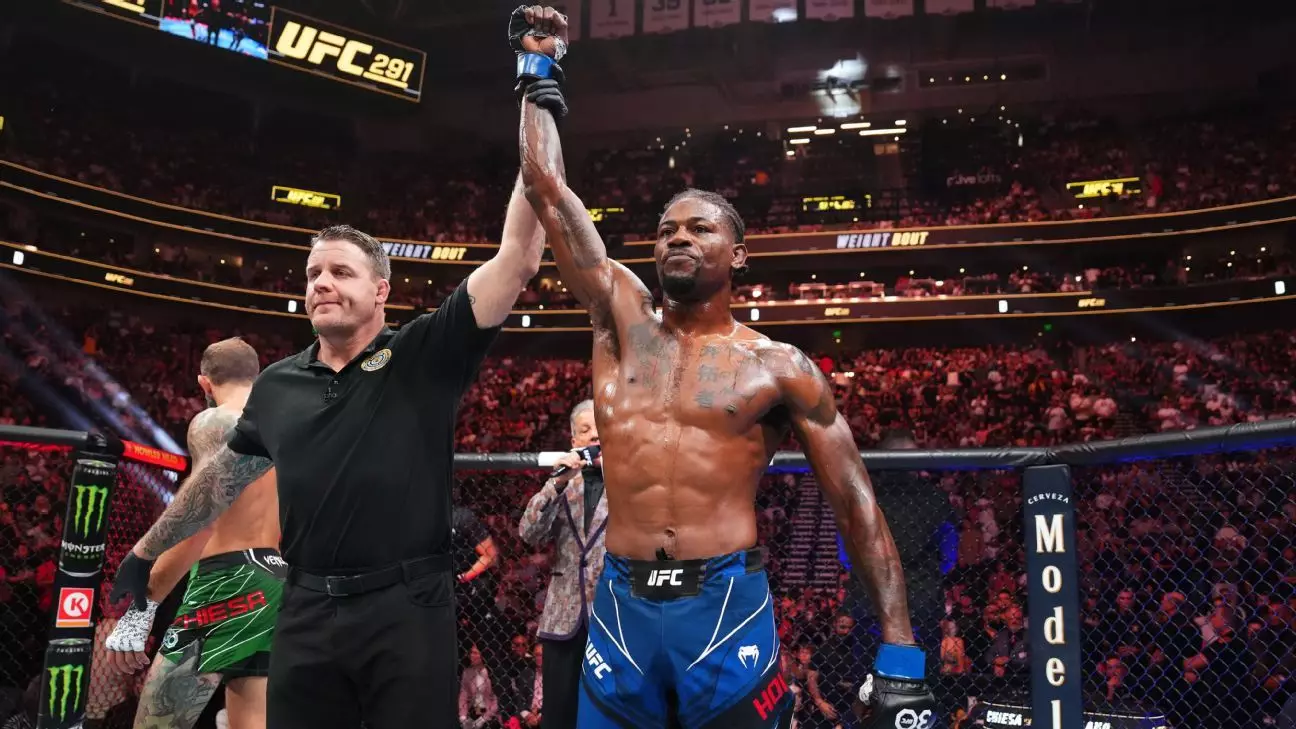Kevin Holland’s upcoming match against Reinier de Ridder at UFC 311 marks a significant milestone in his career—his 24th fight within the UFC. Since breaking into the promotion in 2018, Holland has shown a tenacity that is both admirable and unusual. His ability to seamlessly transition between middleweight and welterweight while maintaining a hectic schedule of competing frequently has transformed him into a notable figure in the MMA landscape. Particularly impressive is his 2020 performance, where he achieved a phenomenal 5-0 record, which showcased his capability to thrive under pressure and adapt to various fighting styles.
What sets Holland apart from many of his peers is his clear dismissal of championship aspirations. When asked about his motives, Holland emphasized a different goal: surpassing the record for most UFC fights, currently held by veteran Jim Miller. His desire to compete frequently, ideally aiming for up to six or seven bouts within a single year, is driven primarily by financial considerations rather than the allure of titles. “I fight for my financial lifestyle,” he stated, a declaration that highlights the pragmatic approach he has adopted in an industry often dominated by the chase for championships.
Holland’s stance raises intriguing questions about the relationship between financial compensation and athletic ambition in combat sports. While many fighters see championship belts as the pinnacle of success, Holland seems to perceive them as potential roadblocks to economic growth and career longevity. Particularly noteworthy is his perspective on title contention; the politics and potential decrease in fight frequency that comes with being a champion do not appeal to him. This perspective offers a refreshing contrast to the traditional motivations seen within the sport.
In the realm of MMA, it is not uncommon for fighters to sacrifice everything for a shot at a championship. However, Holland’s strategic mindset towards his career challenges the conventional wisdom that equates success solely with titles. His recognition of the financial ramifications that come with championship fighting—often leading to fewer matches and uncertain pay—reveals a keen understanding of the sport’s business aspects. Holland’s intelligence in navigating his career, prioritizing stability, and taking control of his fighting schedule serves as a reminder that fighters can also be shrewd businesspeople.
As Holland looks to continue his upward trajectory in the sport, the focus remains crystal clear: to emerge from the bout against de Ridder unscathed and to continue his campaign of regular fights. His desire to chase Jim Miller’s record signifies not just ambition but a revolutionary viewpoint in a world where many are focused solely on titles. Holland is steadily carving out a unique legacy defined not by championships, but by determination, frequency, and a resolute approach to personal success.
Kevin Holland serves as a testament to the fact that there is no singular path to success in the UFC. His commitment to regular competition and financial wellbeing over title contention paints a portrait of a fighter who is not only in the game for accolades but is conscious of the realities that shape a successful career in mixed martial arts. The outcome of his upcoming fight will be significant, but even more impactful will be how he continues to challenge norms within the sport.


Leave a Reply